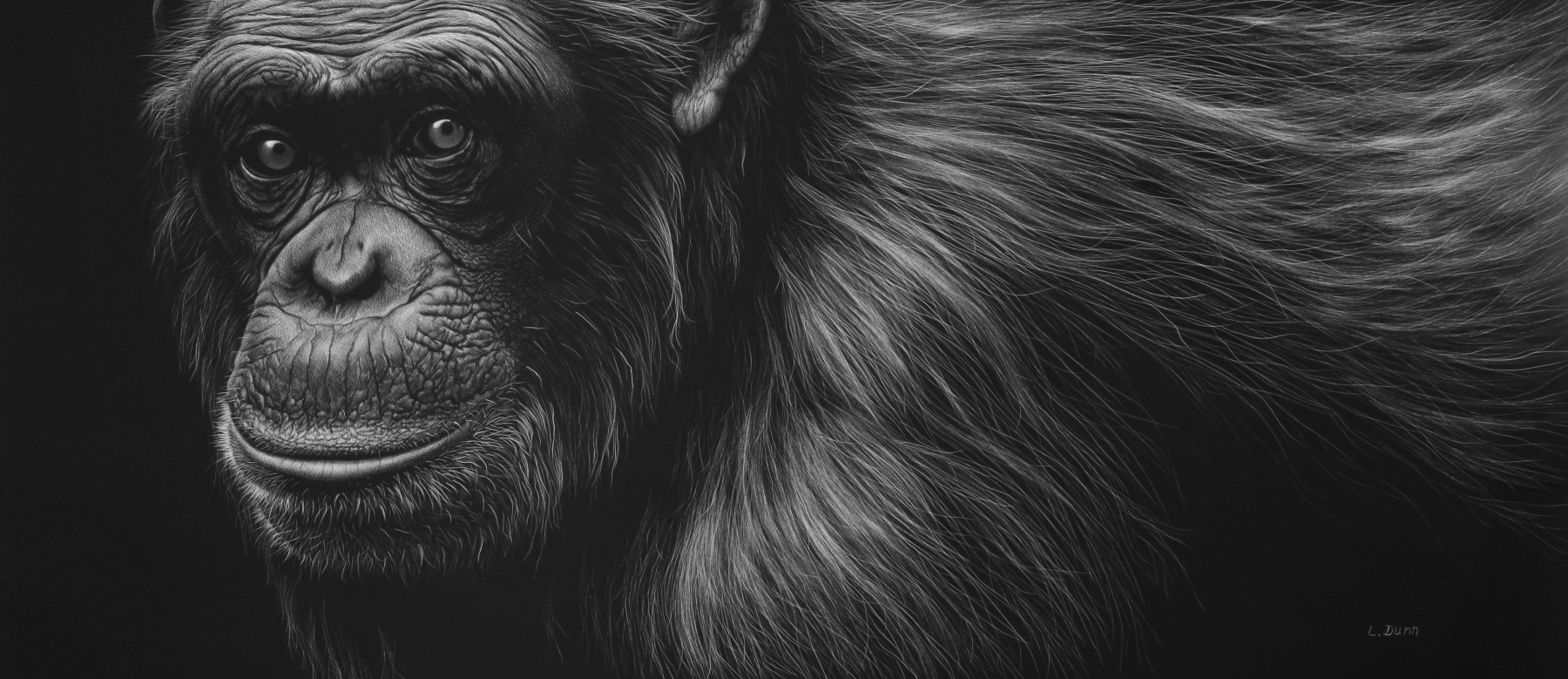LORI DUNN SCRATCHBOARD ART
promoting conservation through artistic efforts
Insight
9 x 20
SOLD
For 150 years our closest living relative the chimpanzee (Pan troglodytes) has been used in bio medical research due primarily to the fact that they share 99% of the same DNA as that of humans. Over the years chimps have been valuable models for the development of a wide variety of vaccines, including hepatitis A and B, and have also assisted in the research of malaria, HIV, stem cells, viruses, cancer, and congenital infections. They have provided valuable knowledge in the understanding of evolution and human behavior.
As conservation work and research on wild chimpanzees developed over the years it revealed stunning revelations on the similarities in behavior between great apes and humans. It became increasingly apparent that there were ethical concerns about the use of chimps in labs. The Jane Goodall foundation, and many animal rights organizations, have fought hard to both reduce the numbers of chimps used in such research, and develop protocols for humane living conditions.
Recently the National Institute of Health announced that due to new scientific methods and technologies available for use in medical research, chimpanzees would be phased out, with only about 50 or so individuals being kept in labs. It was a huge victory for groups advocating for the rights of these animals. The US Fish and Wildlife service is also hoping to now list captive chimps as an endangered species. Currently the endangered species act does not give this protective status to captive chimps, but only their wild counterparts.
The insight we have gained from bio medical research on the chimpanzee cannot be understated as it would be a disservice to the sacrifice these animals have made on our behalf. What we have learned is invaluable, but I think the most important lesson is to respect the incredible intelligence, thoughtfulness and socially intricate ways of not only the chimpanzee, but other great apes that share our world and give them the protection they deserve.
